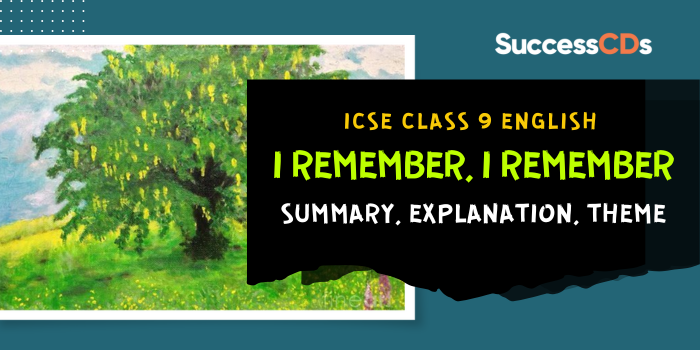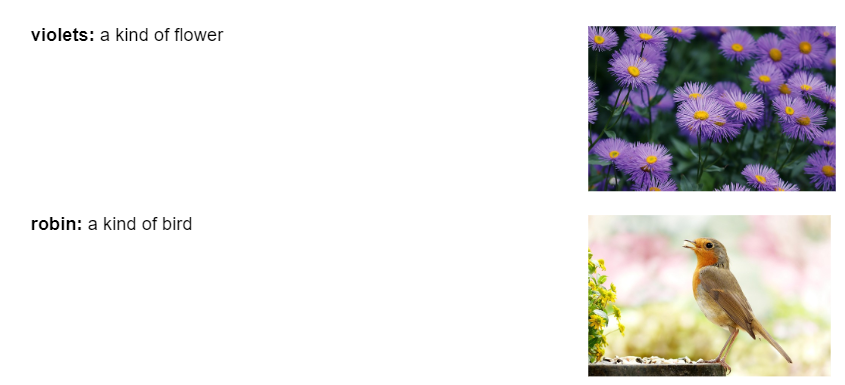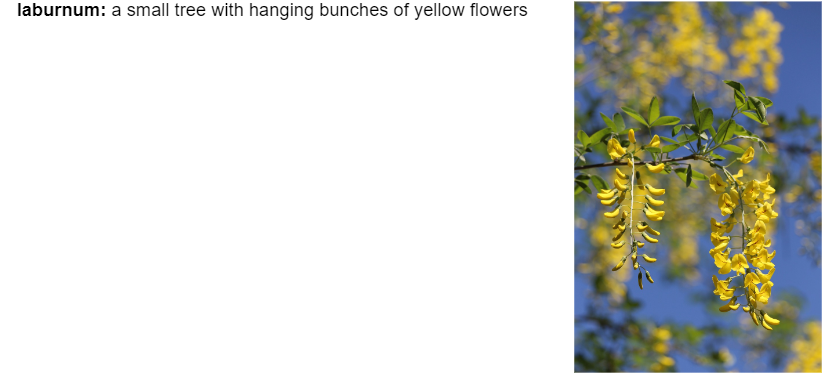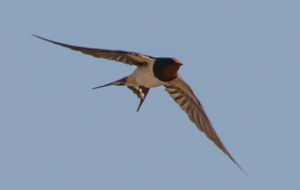
ICSE Class 9 English Poem I Remember Summary, Line by Line Explanation, Theme, Poetic Devices along with difficult word meanings from Treasure Chest Book
I Remember, I Remember – Are you looking for Theme, Summary and Poem Explanation for ICSE Class 9 English Poem I Remember, I Remember from Treasure Chest (A Collection of ICSE Poems and Short Stories) book. Get Summary, Theme, Explantion, Poetic Devices along with difficult word meanings.
- Introduction to I Remember, I Remember
- I Remember, I Remember Summary
- Poem Explanation
- Title Analysis of the Poem I Remember, I Remember
- Themes of I Remember, I Remember
- Narration Style of I Remember, I Remember
- Poetic Devices in I Remember, I Remember
- I Remember, I Remember Question Answers Class 9 ICSE
I Remember, I Remember ICSE Class 9 English
By Thomas Hood
Introduction to I Remember, I Remember
“I Remember, I Remember” by Thomas Hood was published in William Michael Rosetti’s The Poetical Works of Thomas Hood in 1903. The poet has romanticized childhood as a phase of his life that was filled with bliss and timelessness. He has contrasted childhood to gloomy and uncertain adulthood. The poet is aware that he cannot return to his childhood days.
I Remember, I Remember Summary
At a Glance
|
The poem “I Remember, I Remember” by Thomas Hood is a journey through the poet’s memories, contrasting the joy of his childhood with the unhappiness of his present life.
The poem starts with a sense of nostalgia. The poet fondly remembers the house where he was born, the sun peeping in every morning, and how it never felt like a long day back then. Now, he longs for the night to take him away which hints at current unhappiness.
The poet continues to remember more details from his childhood. He remembers beautiful flowers – red and white roses, violets, and lily cups – and describes them as being “made of light,” highlighting their beauty and innocence. He remembers a special birthday when his brother planted a laburnum tree, and how exciting it is that the tree is still alive.
The poet remembers swinging and feeling his spirit soar like a bird. This sense of freedom and joy stands in stark contrast to how he feels now in adulthood.
The poet recalls seeing tall fir trees and naively believing they touched the sky. He acknowledges this as “childish ignorance,” but his current “wisdom” in adulthood brings him no joy. He feels farther away from happiness and a sense of wonder than he did as a child.
The overall message of the poem is that the poet cherishes his childhood memories but feels a deep sense of loss in his present life. The poem highlights the value of childhood innocence and the bittersweet nature of memory.
Poem Explanation
Poem:
I remember, I remember,
The house where I was born,
The little window where the sun
Came peeping in at morn;
He never came a wink too soon,
Nor brought too long a day,
But now, I often with the night
Had borne my breath away!
Word Meaning:
peeping in: looking in secretly through a small opening
morn: morning
borne: carry
borne my breath away: to carry my life away; to cause death
Explanation:
The poet reflects on his childhood days spent in the house in which he was born and brought up. He remembers a little window in his house through which sunlight would peep in. He would see the sun rising and setting everyday at the same time. The poet has personified the sun by describing it as “He never came a wink too soon, Nor brought too long a day”. In the present, the poet wishes that his life had ended when he was still a child. This suggests that the poet believed that his childhood was better than adulthood.
Poem:
I remember, I remember
The roses, red and white,
The violets, and the lily-cups,
Those flowers made of light!
The lilacs where the robin built,
And where my brother set
The laburnum on his birth-day,-
The tree is living yet!
Word Meaning:


Explanation:
The poet remembers the beautiful garden in his house full of colourful varieties of flowers. He talks about the red and white roses, the violets, the lily-cups and lilacs with the robin’s nest. He found flowers so delicate that he believed that they were made of light. The poet then remembers the laburnum tree that his brother had planted on one of his birthdays.
This stanza shows how children have the simplicity to find and enjoy the little joys of life in nature.
Poem:
I remember, I remember,
Where I was used to swing,
And thought the air must rush as fresh
To swallows on the wing;
My spirit flew in feathers then,
That is so heavy now,
And summer pools could hardly cool
The fever on my brow!
Word Meaning:
swallows: a kind of bird

feathers: soft light parts on the body of a bird
fever on my brow: suggestive of misery and gloominess
Explanation:
The poet talks about the carefree life of childhood. He remembers the swing from his childhood, which would lift both him and his spirits up. While enjoying the breeze that he could experience when he was on the swing, he wondered if the swallow birds also felt the same rush of air while flying. As a child, he was free from the burdens of adult life. The dip in the summer pools that cooled him as a child can barely do the same thing now that he is an adult.
Poem:
I remember, I remember,
The fir trees dark and high;
I used to think their slender tops
Were close against the sky;
It was a childish ignorance,
But now ‘tis little joy
To know I’m father off from heaven
Than when I was a boy!
Word Meaning:
fir trees: forest trees with leaves like needles
feathers: soft light parts on the body of a bird
fever on my brow: suggestive of misery and gloominess
Explanation:
The poet talks about the carefree life of childhood. He remembers the swing from his childhood, which would lift both him and his spirits up. While enjoying the breeze that he could experience when he was on the swing, he wondered if the swallow birds also felt the same rush of air while flying. As a child, he was free from the burdens of adult life. The dip in the summer pools that cooled him as a child can barely do the same thing now that he is an adult.
Poem:
I remember, I remember,
The fir trees dark and high;
I used to think their slender tops
Were close against the sky;
It was a childish ignorance,
But now ‘tis little joy
To know I’m father off from heaven
Than when I was a boy!
Word Meaning:
fir trees: forest trees with leaves like needles

slender: delicate
tops: upper parts (or a tree)
close: near
father: distant
Explanation:
In the last stanza, the poet talks about how as a child he used to think that the top of fir tree could almost touch the sky (heaven). Now, as an adult he knows better. But there is no joy in knowing that heaven is farther away from what he had imagined it to be as a child. Ignorance is bliss, which is the reason behind the happiness of children. They are protected from the harsh realities of life.
Title Analysis of the Poem I Remember, I Remember
The title “I Remember, I Remember” is repeated in the first line of each stanza of the poem. Throughout the poem, the pronoun “I” is the focal point and remembrance, the guiding theme of the poem. The repetition suggests that the poet is remembering his childhood days and wants to highlight his longing for the same.
By focusing on the self, the poet wants the reader to know about his childhood memories. The use of the present tense ‘remember’ also helps to create a divide within the poem. The poet is ‘remembering’ the past in the present. He can not return to his childhood days. This is a point of sorrow for the poet as he is missing the ease of his childhood life.
Theme of I Remember, I Remember
- Childhood Happiness
Childhood Happiness is the most prominent theme in the poem. Throughout the poem, the poet thinks of beautiful memories of his childhood and how that happiness has been lost with the end of his childhood days. Children are filled with wonder. They do not need much to be happy and the simple beauties of life are enough to heighten their spirits. The poet thinks about the beautiful flowers-roses, violets, lilies and lilacs from his childhood that would fire his imagination such that he thought they were made of light. The poet misses that time of his life when he had the chance to stop and admire their beauty and feel the sweet smell of the flowers and appreciate the simple joys of life. Adults are so engrossed in practical responsibilities that they do not find time to appreciate small joys of nature.
- Fleeting Nature of Time
The poem highlights the contrast between the poet’s happy childhood and his present unhappiness. This contrast underlines the fleeting nature of time and the inevitability of change.
“But now, I often wish the night
Had borne my breath away!”
This line signifies a longing for escape from the present, highlighting the loss of happy childhood days
- Childhood Innocence
The poem paints a vivid picture of the poet’s childhood innocence. Details like swinging on a rope, the beauty of flowers, and believing the fir trees touched the sky all represent a simpler, more carefree time in his life. These memories are contrasted with the burdens and complexities of adulthood.
“The roses, red and white,
The violets, and the lily-cups”
These lines detail the beauty of flowers, representing the simplicity of childhood joys.
“And thought the air must rush as fresh
To swallows on the wing”
The above lines compare the feeling of swinging to the freedom experienced by birds, symbolizing childhood innocence.
“I used to think their slender tops
Were close against the sky”
This line describes the poet’s belief that the fir trees touched the sky, highlighting his childlike sense of wonder.
Setting of the Poem I Remember, I Remember
The poem is set in the memory of the poet. The poet goes down the memory lane to bring back pieces from his childhood. Nature forms an important component in this setting.
The poet’s connection with nature is seen through the sun and a beautiful garden in his house with a robin’s nest in the lilacs and a laburnum tree that his brother had planted on his birthday which still stands there as a living remnant of the past that he had lost.
Each and every memory of the poet’s childhood reminds him that he would not be able to return to his childhood days again. Thus, the setting of the poem highlights the memories of the poet and takes the reader along for his nostalgic journey into childhood and ends with his present stage, away from nature and full of burdens of adult life.
Narration Style of I Remember, I Remember
The poem is written in the first person, with the poet directly addressing the reader using “I.” This allows for a more personal and intimate exploration of the poet’s memories and emotions.
While the poem is primarily focused on the past, there are shifts in focus to the poet’s present. This is most evident in lines like “But now, I often wish the night / Had borne my breath away!” which highlight the contrast between the happy memories and the poet’s current unhappiness. The overall tone of the poem is nostalgic.
Form and Structure:
- “I Remember, I Remember” is a 32 line poem.
- There are a total of four stanzas in the poem with 8 lines each. An eight line stanza is called an Octave.
- The rhyme scheme is consistent throughout, following an ABCBDEFE rhyme scheme in all the stanzas.
- The poem uses a refrain with the repeated line “I remember, I remember” at the beginning of each stanza. This emphasizes the act of remembering and creates a sense of structure.
- Each stanza focuses on a specific memory from the poet’s childhood, contrasting it with his present state of mind.
Poetic Devices in I Remember, I Remember
Alliteration: The repetition of consonant sounds in the same line.
- The sound of / r / in “The roses, red and white”
- The sound of / f / in “My spirit flew in feathers then”
Anaphora: It refers to the repetition of a word or expression in the first part of some verses. For example, the repetition of “I remember, I remember” at the beginning of each stanza in the poem “I Remember, I Remember”
Assonance: Assonance is the repetition of vowel sounds in the same line.
For example,
- The sound of / oo / in “And summer pools could hardly cool.”
Enjambment: It is defined as a thought in verse that does not come to an end at a line break. Instead, it is continued in the next line or verse. For example,
“And thought the air must rush as fresh
To swallows on the wing.”
Imagery: Imagery is used to make readers perceive things involving their five senses. For example,
- “The little window where the sun
Came peeping in at morn”
- “The roses, red and white,
The violets, and the lily-cups”
Metaphor: It is a figure of speech in which an implied comparison is made between different persons and objects.
“My spirit flew in feathers then” – This metaphor compares the feeling of swinging to flying like a bird, symbolizing the freedom and exhilaration the poet experienced in his childhood.
Simile: It refers to comparison using words “like” and “as”.
“And thought the air must rush as fresh / To swallows on the wing” (comparing the feeling of swinging to a swallow’s flight) emphasizes the exhilarating freedom of his childhood.
Related Link : ICSE Class 9 English Language and Literature Syllabus 2024-25
Also See :
ICSE Class 9 English Summary
- Bonku Babu’s Friend Summary, Theme| ICSE Class 9 English
- The Night Mail Summary, Explanation, Theme | ICSE Class 9 English Poem
- Oliver Asks for More Summary, Theme| ICSE Class 9 English
- The Model Millionaire Summary, Theme| ICSE Class 9 English
- Skimbleshanks: The Railway Cat Summary, Explanation, Theme | ICSE Class 9 English Poem
- A Doctor’s Journal Entry for August 6, 1945 Summary, Explanation, Theme | ICSE Class 9 English Poem
- Home-coming Summary, Theme| ICSE Class 9 English
- The Boy Who Broke the Bank Summary, Theme| ICSE Class 9 English
- A Work of Artifice Summary, Explanation, Theme | ICSE Class 9 English Poem
ICSE Class 9 English Important Question Answers
- Bonku Babu’s Friend Question Answers Class 9 ICSE
- The Night Mail Question Answers Class 9 ICSE
- Oliver asks for More Question Answers Class 9 ICSE
- The Model Millionaire Question Answers Class 9 ICSE
- Skimbleshanks: The Railway Cat Question Answers Class 9 ICSE
- A Doctor’s Journal Entry for August 6, 1945 Question Answers Class 9 ICSE
- Home-coming Question Answers Class 9 ICSE
- The Boy Who Broke the Bank Question Answers Class 9 ICSE
- A Work of Artifice Question Answers Class 9 ICSE